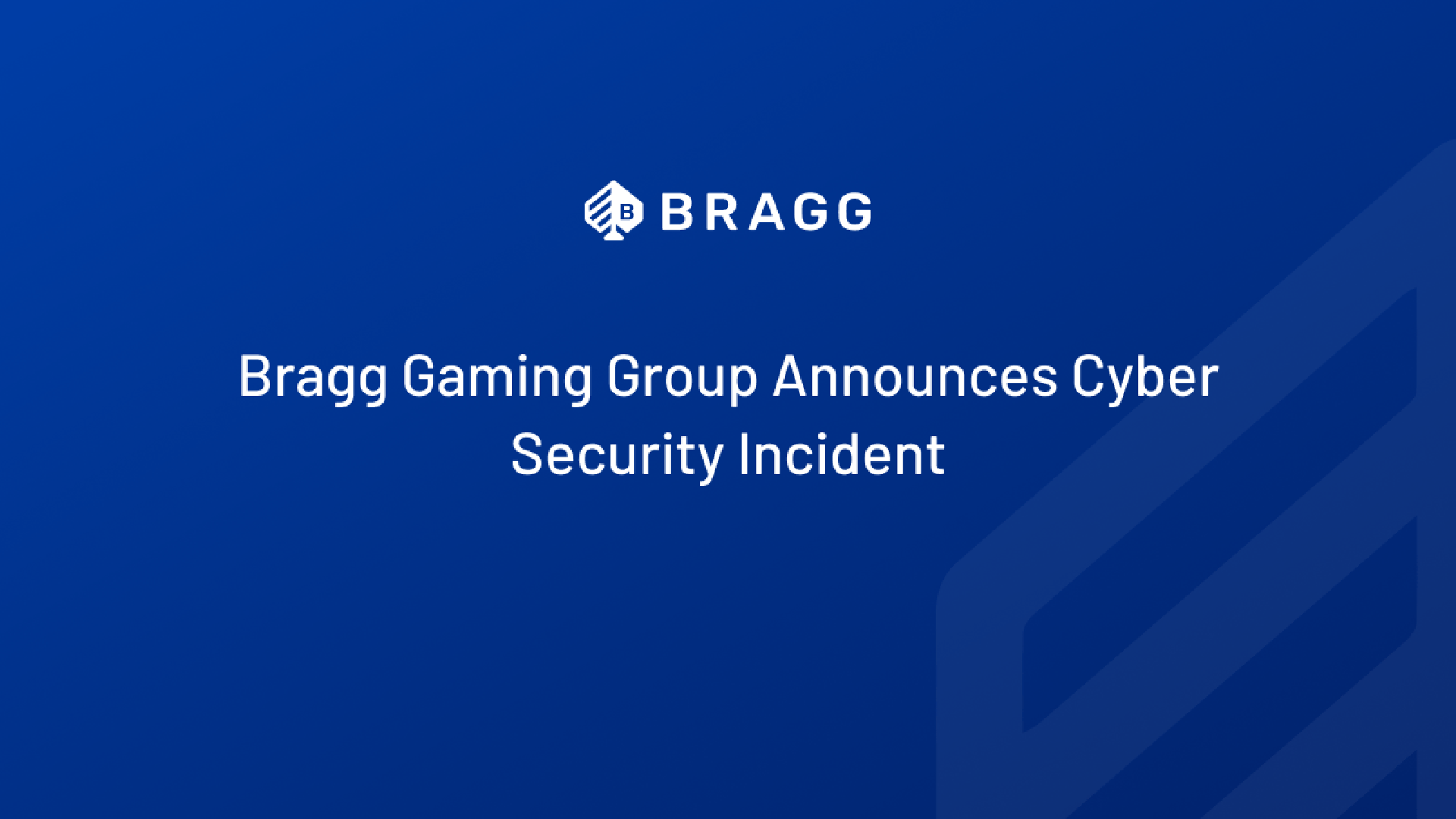Bragg Gaming Group Announces Cybersecurity Incident
Although Toronto-based Bragg Gaming Group said that it had experienced a cybersecurity breach, there is yet no proof that any personal data has been compromised.
According to the corporation, early on Saturday morning, its IT staff became aware of the occurrence.
"Immediate steps to mitigate any potential impact" were taken by Bragg. Bringing in outside cybersecurity specialists to help the business handle the issue is one aspect of it.
The business stated that it thinks the data breach only affected Bragg's internal computer infrastructure and that it hasn't affected Bragg's capacity to function as of yet. Additionally, it stated that the company's access to the compromised data has not been restricted.
Independent Cybersecurity Experts Involved
“Bragg is committed to data safety, is taking the matter very seriously and asks its customers and partners for their patience as it seeks to remediate the situation,” the company said in a statement.
Online and land-based gaming operators in the US, Canada, Brazil, the UK, Italy, the Netherlands, Germany, Sweden, Spain, Malta, and Colombia are served by Bragg Gaming Group, a B2B distributor of igaming content and turnkey solutions.
As of this writing, Casino.org had not received a response to its request for additional comment from a Bragg Gaming Group representative.
Lately, Bragg has been really busy
According to Casino.org, Bragg has been very busy in the past year. The business reported a 4.9% year-over-year growth in revenue (US$30.5 million) in its Q2 2025 financial results, which were revealed last week. In June, Bragg announced a collaboration with Hard Rock Digital for content distribution, and in July, he announced a technology agreement with Fanatics Casino.
The company's dedication to creating higher-margin proprietary content was further strengthened in June when Scott Milford was appointed executive vice president, group content.
Bragg declared in January that it would enter the new, regulated iGaming sector in Brazil, which is expected to be valued at US$3.7 billion by 2030 and US$1.4 billion in 2025.













